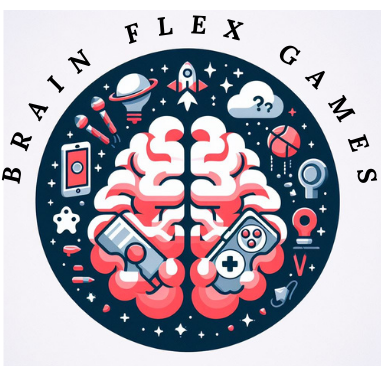
Imagine turning your commute or coffee break into an opportunity to boost your brain power.
That’s the alluring premise behind brain training games. These are special kinds of puzzles and tasks designed to give your cognitive faculties a workout.
Recently, brain training has surged in popularity, with apps promising to improve everything from memory to attention span.
This isn’t just about having fun with puzzles; it’s also about the enticing potential to enhance mental function.
In this article, I’m going to untangle the complex web of claims surrounding these digital brain enhancers. Understanding the full picture is crucial for anyone considering these games as a tool for mental improvement.
You’re going to find out about studies that suggest playing these games can sharpen your mind, but you’ll also hear from skeptics who aren’t convinced.
It’s a debate with significant implications, especially as more people invest their time and money into these apps.
With the stage set, let’s explore the advantages. If you’re curious about brain training games, read on to learn how they might benefit your cognitive health – just remember to keep an open mind about the limitations that we’ll address a bit later on.
Sharpening Your Mind: The Benefits of Brain Training

So, you’re eager to know how brain training games can help you. These digital workouts conjure images of intellectual gymnastics that promise to buff up your brain cells. And guess what? They can indeed have some impressive perks.
Cognitive improvement is often the most touted advantage. Regularly challenging your brain with puzzles and tasks is designed to boost various skills.
It’s like taking your brain to the gym: the more you exercise it, the stronger it gets. There’s evidence suggesting that brain training can help improve attention, processing speed, and mental flexibility.
Now, aging is a natural process but staying mentally sharp is crucial. Some studies point towards brain games possibly slowing down the rate of cognitive decline.
Notice the operative word here: ‘possibly’. It’s not a magic pill, but rather a piece of the puzzle in sustaining your cognitive health as you age.
Memory enhancement is another potential plus. Ever walked into a room and forgotten why you’re there? Brain training games could help mitigate these mental ‘hiccups’.
By regularly exercising your recall abilities, you may find it easier to remember names, lists, or even where you left your keys.
For those moments when life throws a curveball, problem-solving skills become invaluable.
Brain games are crafted to sharpen your ability to tackle problems and adapt to new situations. You’re essentially teaching your brain to be more resourceful and nimble.
Lastly, let’s not overlook the anecdotal evidence. While personal stories shouldn’t overrule scientific data, many users report feeling more mentally ‘on point’ after engaging with brain training.
The Other Side of the Coin: Drawbacks of Brain Training Games

You’ve likely heard a lot about the potential perks of brain training games. Reports may tell you they’re the solution to keeping your mind sharp as a tack. But let’s not get carried away just yet.
One of the biggest pinch points in the brain game conversation is the actual effectiveness of these tools. There’s a swirl of debate among experts about whether these games translate to real-life cognitive improvements.
Don’t worry too much about falling for the hype, but be cautious. It’s easy to be lured by the promise of a mental boost, but creating unrealistic expectations is a concern.
Some providers oversell the benefits, leaving users disappointed if results don’t match the glowing testimonials.
Investing time and money in brain training can feel productive, but consider the trade-off. Is it the best use of your resources?
There’s no ironclad guarantee of sharper cognition after hours of matching colored shapes or solving riddles. And yes, it might even dent your wallet, considering some of these platforms require subscriptions.
Moreover, excessive use of anything can be problematic, and brain training games are no exception.
The compulsion to score higher or reach the next level could edge into addictive territory, potentially leading to a negative impact on overall lifestyle, including physical activity and social interactions.
Lastly, while some studies offer a thumbs-up for brain training, many in the scientific community voice concerns.
Critics argue that benefits shown in a controlled study environment may not equate to noticeable changes in daily life. They point to the need for more rigorous, long-term research.
Before hopping on board the brain training train, look beyond the flashy brainwave graphics.
There are many methods to maintain cognitive health, and it’s essential to weigh them all.
Up next, you’re going to find out about how to make an informed decision on whether brain training games are right for you.
Making an Informed Decision: Should You Play Brain Training Games?
So you’ve heard both sides, the glittering promises and the skeptical critiques. It’s clear that brain training games have potential, but they aren’t magical remedies.
If you’re considering testing the waters, remember to keep realistic expectations.
Choosing something that resonates with you is crucial. Are you looking for a fun challenge or a serious cognitive booster?
What fits into your lifestyle? You can always adjust your approach down the road.
I’m going to emphasize the value of balance. Don’t lean only on brain games for mental fitness.
Pair them with a healthy diet, regular exercise, and good sleep hygiene for an all-encompassing approach to cognitive health.
Ultimately, the scientific evidence is mixed, so I encourage you to be both optimistic and cautious.
Explore various options and listen to your mind and body. Your first attempt doesn’t need to be your last.
In my opinion, as long as you’re engaging your brain, you’re on the right track. Whether it’s through puzzles, new languages, or social interactions, keeping your mind active is key.
Brain training games? They can be a piece of the puzzle, but certainly not the whole picture.
I really hope that you find a brain fitness strategy that works for you. Keep learning, stay curious, and feel free to share your experiences. I’d love to hear how you’re keeping your mind sharp!
